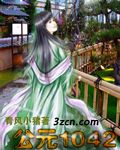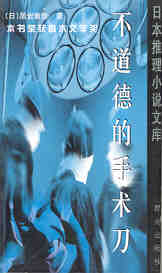04道德经英译本85种-第333部分
按键盘上方向键 ← 或 → 可快速上下翻页,按键盘上的 Enter 键可回到本书目录页,按键盘上方向键 ↑ 可回到本页顶部!
————未阅读完?加入书签已便下次继续阅读!
Throughout his life;
both being and non…being;
the Tao protects him。
17
LEADERSHIP BY EXCEPTION
Man cannot comprehend the infinite;
only knowing that the best exists;
the second best is seen and praised;
and the next; despised and feared。
The sage does not expect that others
use his criteria as their own。
The existence of the leader who is wise
is barely known to those he leads。
He acts without unnecessary speech;
so that the people say;
〃It happened of its own accord〃。
18
THE DECAY OF ETHICS
When the way of the Tao is forgotten;
kindness and ethics need to be taught;
men learn to pretend to be wise and good。
All too often in the lives of men;
filial piety and devotion
arise only after conflict and strife;
just as loyal ministers all too often appear;
when the people are suppressed。
19
RETURNING TO NATURALNESS
It is better merely to live one's life;
realizing one's potential;
rather than wishing
for sanctification。
He who lives in filial piety and love
has no need of ethical teaching。
When cunning and profit are renounced;
stealing and fraud will disappear。
But ethics and kindness; and even wisdom;
are insufficient in themselves。
Better by far to see the simplicity
of raw silk's beauty
and the uncarved block;
to be one with onself;
and with one's brother。
It is better by far
to be one with the Tao;
developing selflessness;
tempering desire;
removing the wish;
but being compassionate。
20
BEING DIFFERENT FROM ORDINARY MEN
The sage is often envied
because others do not know
that although he is nourished by the Tao;
like them; he too is mortal。
He who seeks wisdom is well advised
to give up academic ways;
and put an end to striving。
Then he will learn that yes and no
are distinguished only by distinction。
It is to the advantage of the sage
that he does not fear what others fear;
but it is to the advantage of others
that they can enjoy the feast;
or go walking; free of hindrance;
through the terraced park in spring。
The sage drifts like a cloud;
having no specific place。
Like a newborn babe before it smiles;
he does not seek to communicate。
In the eyes of those
who have more than they need;
the sage has nothing; and is a fool;
prizing only that which of the Tao is born。
The sage may seem to be perplexed;
being neither bright nor clear;
and to himself; sometimes he seems
both dull and weak; confused and shy。
Like the ocean at night;
he is serene and quiet;
but as penetrating as the winter wind。
21
FINDING THE ESSENCE OF TAO
The greatest virtue is to follow the Tao;
how it achieves ! without contriving。
The essence of Tao is dark and mysterious;
having; itself; no image or form。
Yet through its non…being;
are found image and form。
The essence of Tao is deep and unfathomable;
yet it may be known by not trying to know。
22
YIELDING TO MAINTAIN INTEGRITY
Yield; and maintain integrity。
To bend is to be upright;
to be empty is to be full。
Those who have little have much to gain;
but those who have much
may be confused by possessions。
The wise man embraces the all encompassing;
he is unaware of himself; and so has brilliance;
not defending himself; he gains distinction;
not seeking fame; he receives recognition;
not making false claims; he does not falter;
and not being quarrelsome;
is in conflict with no one。
This is why it was said by the sages of old;
〃Yield; and maintain integrity;
be whole; and all things come to you〃。
?br》 ?br》 ?br》 ?br》 ?br》 ?br》 ?br》 ?br》 ?br》
23
ACCEPTING THE IRREVOCABLE
Nature's way is to say but little;
high winds are made still
with the turn of the tide;
and rarely last all morning;
nor heavy rain; all day。
Therefore; when talking;
remember also
to be silent and still。
He who follows the natural way
is always one with the Tao。
He who is virtuous may experience virtue;
whilst he who loses the natural way
is easily lost himself。
He who is at one with the Tao
is at one with nature;
and virtue always exists for he who has virtue。
To accept the irrevocable
is to let go of desire。
He who does not have trust in others
should not himself be trusted。
?br》
24
EXCESS
He who stretches
beyond his natural reach;
does not stand firmly
upon the ground;
just as he
who travels at a speed
beyond his means;
cannot maintain his pace。
He who boasts
is not enlightened;
and he who is self…righteous
does not gain respect
from those who are meritous;
thus; he gains nothing;
and will fall into disrepute。
Since striving;
boasting and self…righteousness;
are all unnecessary traits;
the sage considers them excesses;
and has no need of them。
25
THE CREATIVE PRINCIPLE OF TAO
The creative principle unifies
the inner and external worlds。
It does not depend on time or space;
is ever still and yet in motion;
thereby it creates all things;
and is therefore called
'the creative and the absolute';
its ebb and its flow extend to infinity。
We describe the Tao as being great;
we describe the universe as great;
nature too; we describe as great;
and man himself is great。
Man's laws should follow natural laws;
just as nature gives rise to physical laws;
whilst following from universal law;
which follows the Tao。
26
CENTRING
The natural way is the way of the sage;
serving as his dwelling;
providing his centre deep within;
whether in his home or journeying。
Even when he travels far;
he is not separate
from his own true nature。
Maintaining awareness of natural beauty;
he still does not forget his purpose。
Although he may dwell in a grand estate;
simplicity remains his guide;
for he is full aware; that losing it;
his roots as well would disappear。
So he is not restless;
lest he loses the natural way。
Similarly; the people's leader
is not flippant in his role; nor restless;
for these could cause the loss
of the roots of leadership。
27
FOLLOWING THE TAO
The sage follows the natural way;
doing what is required of him。
Like an experienced tracker;
he leaves no tracks;
like a good speaker; his speech is fluent;
He makes no error; so needs no tally;
like a good door; which needs no lock;
he is open when it is required of him;
and closed at other times;
like a good binding; he is secure;
without the need of borders。
Knowing that virtue may grow from example;
this is the way in which the sage teaches;
abandoning no one who stops to listen。
Thus; from experience of the sage;
all might learn; and so might gain。
There is mutual respect twixt teacher and pupil;
for; without respect; there would be confusion。
28
RETAINING INTEGRITY
Whilst developing creativity;
also cultivate receptivity。
Retain the mind like that of a child;
which flows like running water。
When considering any thing;
do not lose its opposite。
When thinking of the finite;
do not forget infinity;
Act with honour; but retain humility。
By acting according to the way of the Tao;
set others an example。
By retaining the integrity
of the inner and external worlds;
true selfhood is maintained;
and the inner world made fertile。
29
TAKING NO ACTION
The external world is fragile;
and he who meddles with its natural way;
risks causing damage to himself。
He who tries to grasp it;
thereby loses it。
It is natural for things to change;
sometimes being ahead; sometimes behind。
There are times when even breathing
may be difficult;
whereas its natural state is easy。
Sometimes one is strong;
and sometimes weak;
sometimes healthy;
and sometimes sick;
sometimes is first;
and at other times behind。
The sage does not try
to change the world by force;
for he knows that force results in force。
He avoids extremes and excesses;
and does not become complacent。
30
A CAVEAT AGAINST VIOLENCE
When leading by the way of the Tao;
abominate the use of force;
for it causes resistance; and loss of strength;
showing the Tao has not been followed well。
Achieve results but not through violence;
for it is against the natural way;
and damages both others' and one's own true self。
The harvest is destroyed in the wake of a great war;
and weeds grow in the fields in the wake of the army。
The wise leader achieves results;
but does not glory in them;
is not proud of his victories;
and does not boast of them。
He knows that boasting is not the natural way;
and that he who goes against that way;
will fail in his endeavours。
31
MAINTAINING PEACE
Weapons of war are instruments of fear;
and are abhorred by those who follow the Tao。
The leader who follows the natural way
does not abide them。
The warrior king leans to his right;
from whence there comes his generals' advice;
but the peaceful king looks to his left;
where sits his counsellor of peace。
When he looks to his left; it is a time of peace;
and when to the right; a time for sorrow。
Weapons of war are instruments of fear;
and are not favoured by the wise;
who use them only when there is no choice;
for peace and stillness are dear to their hearts;





